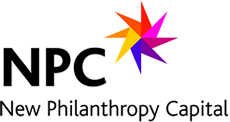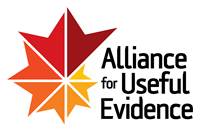External Databases and ResourcesToolsTraining and Courses
External Databases and Resources
The Collective Impact Forum is an initiative of FSG and the Aspen Institute Forum for Community Solutions. It is a place to find tools and training around collective impact, as well as an expanding network of like-minded individuals.
The Collective Impact Forum is an initiative of FSG and the Aspen Institute Forum for Community Solutions. It is a place to find tools and training around collective impact, as well as an expanding network of like-minded individuals.
Uscreates Social Value Measurement Toolkit helps you to put in place what is necessary to plan and deliver an effective Social Value measurement approach. Developed in collaboration with leading companies and informed by hands-on practitioner experience, it provides tried and tested insight into how to get the most out of Social Value measurement.
The Toolkit features:
> How to define and map social value.
> How to define the right objectives, set relevant success factors, choose the right methodologies, engage stakeholders and embed your approach in your organisation
> Practical examples and what others have learnt along the way
> Video interviews with practitioners from O2, RBS and EY.
> Case studies from Sainsbury’s, Deloitte, Landmarc, Aviva and Catch22
> Downloadable tools and resources
The Value game is an online web tool for surveying your stakeholders. They will tell you the importance – expressed as a value - of what they experience as a result of using your products or services, the outcomes.
The Simple Wheel provides tools for nonprofits to measure their impact, and for donors to better inform their giving.
The Journey to EmploymenT (JET) framework from Inspiring Impact helps organisations that work with young people understand and measure the impact they have on the journey to employment.
Collective Impact is a framework, from Collaboration for Impact, designed to tackle deeply entrenched and complex social problems. It is an innovative and structured approach to making collaboration work across government, business, philanthropy, non-profit organisations and citizens to achieve significant and lasting social change.
This resources from Climate Change Social Learning and Communication (CCSL) can help you get started with the monitoring and evaluation (M&E) of your social learning approach, or to improve your existing monitoring strategy (from a social learning perspective). As an important element of an iterative, adaptive management approach, M&E should be carried out continually and inform actors and decisions in short feedback loops, to facilitate looped learning. In the context of social learning, monitoring should be as social as other aspects of a project’s approach, involving all actors in a project.
Value Insight is a tool from HACT for understanding, measuring and mapping the social impact of community investment activities and the impact on the local economy.
The StrategicFrame, developed by the University of Sydney Business School, is an organising framework that helps coordinate the process of measuring and improving an organisation’s performance and impact.
The StrategicFrame brings the focus back to the organisation. It can be useful regardless of your organisation’s mission, size, stage of development, or time available. It can assist you develop a coherent story with sufficient context and depth to communicate your impact, incorporating multiple measurement tools (such as SROI, IRIS, Outcomes Stars or internal measures).
Philanthropic donors and foundations are rightly concerned to understand the effect of their work in order to see where and how to improve. This White Paper from Giving Evidence outlines 5 tools to help donors and funders better understand their performance.
The tools involve understanding:
- Are our grants succeeding?
- Is the patient getting better? Leaving aside causation for a second, is the problem we’re addressing getting better or worse?
- Could we release hidden funds by streamlining our processes?
- What do our grantees think of us?
- What have we learned? Identify and articulate lessons about performance and experience, and share them externally such that others can learn too.
The Outcomes Star from Triangle is a tool that measures and supports progress for service users towards self-reliance or other goals. There are twenty Stars, which are sector wide tools with different versions for homelessness, mental health and young people.
The outcomes matrix is a tool to help social investment financial intermediaries (SIFI’s) and social sector organisations to plan, measure and learn about their social impact. It aims to develop common ground and language for social investment and impact assessment in the social sector. The outcomes and measures are not intended to be prescriptive or exhaustive but should provide a helpful starting point for organisations to consider their social impact.
MEASURING NATIONAL PROGRESS – To truly advance social progress, we must learn to measure it, comprehensively and rigorously. The Social Progress Index from Social Progress Imperative offers a rich framework for measuring the multiple dimensions of social progress, benchmarking success, and catalyzing greater human wellbeing. The 2014 version of the Social Progress Index has improved upon the 2013 ‘beta’ version through generous feedback from many observers.
PerformWell is a collaborative effort initiated by Urban Institute, Child Trends, and Social Solutions in the United States. PerformWell provides measurement tools and practical knowledge that human services professionals can use to manage their programs’ day-to-day performance. Information in PerformWell leverages research-based findings that have been synthesized and simplified by experts in the field. By providing information and tools to measure program quality and outcomes, PerformWell helps human services practitioners deliver more effective social programs.
The Family Star Evaluation is a report is an independent evaluation of the Family Star outcomes tool. It seeks to engage parents and children in the work they need to do to change family life and measure and record their progress. The Family Star is highly commended by Charities Evaluation Services (CES).
The Impact Toolkit from the Economic and Social Research Council includes information on developing an impact strategy, promoting knowledge exchange, public engagement and communicating effectively with your key stakeholders. It aims to give you everything you need to achieve the maximum impact for your work.
The paper, by Geoff Dickens, Judy Weleminsky, Yetunde Onifade and Philip Sugarman, is a collaboration between Mental Health Providers Forum (MHPF) and St Andrew’s Healthcare. The study sought to explore the psychometric properties of Recovery Star to inform training and further development.
Specific objectives were to ascertain whether items on the tool measured a single underlying construct relating to recovery (internal consistency); to identify the nature of any underlying factors (factor validity); to identify any item redundancy; and to identify whether Recovery Star detects reported change over time (responsiveness).
The report findings indicate that the Recovery Star has high internal consistency and appears to be measuring an underlying recovery construct – providing further evidence for the use of the tool within recovery focused mental health services. In line with MHPF’s online analysis, it also demonstrates that the tool was capturing changes over time on most Recovery Star domains.
ICT sector companies are working together to improve the practice of sustainability and social responsibility within their supply chains. To this end, the GeSI Supply Chain Working Group has teamed with the Electronic Industry Code of Conduct (EICC) Implementation Group and other groups to develop a set of tools that satisfy broad industry needs. These tools include this questionnaire, a risk assessment tool, a common approach to auditing, and additional web- based resources. Deployment and use of this Self Assessment Questionnaire is expected to benefit both industrial customers and their suppliers by:
- Raising supplier awareness about the importance of sustainability principles
- Clarifying ICT customer expectations regarding their suppliers’ sustainability practices
- Supporting ICT customer assessments of supplier characteristics and potential risks
- Enabling suppliers to evaluate, improve, and communicate their performance
- Reducing the burden on suppliers of responding to multiple questionnaires
Training and Courses
The Collective Impact Forum is an initiative of FSG and the Aspen Institute Forum for Community Solutions. It is a place to find tools and training around collective impact, as well as an expanding network of like-minded individuals.





